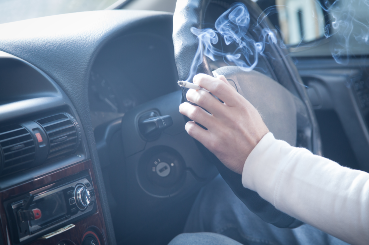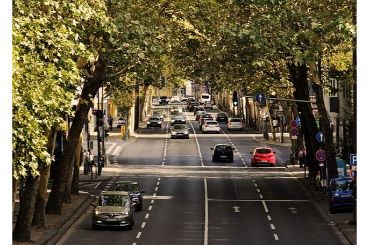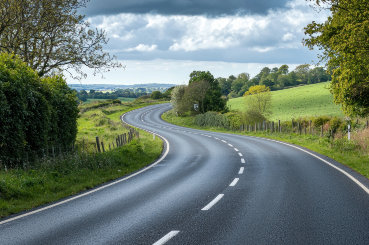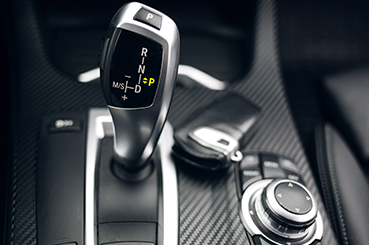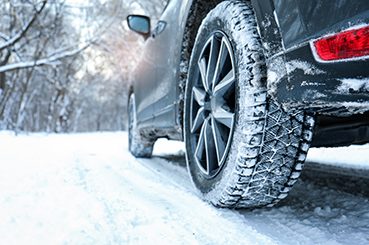In this article, we explain exactly what SORN is and answer some of the most frequently asked questions about SORN.

What is SORN?
So first things first, ‘SORN’ stands for Statutory Off Road Notification.
A statutory off-road notification is used to inform the Driver and Vehicle Licence Agency (DVLA) that you are registering a vehicle as off-road. This ensures you are no longer required to tax or insure it, so it can save you a fair bit if you know you won’t be driving the vehicle for some time.
What does SORN mean?
SORN stands for Statutory Off Road Notification. It’s a program run by the Driver and Vehicle Licensing Agency (DVLA) in the UK. When you SORN a car, you’re essentially telling the DVLA that you’re taking your vehicle off the road and won’t be driving it on public roads.
This has a key benefit: you can avoid paying vehicle tax while the car remains off the road. This can be a great way to save money if you have a car that’s not in use for an extended period, perhaps because it’s broken down, undergoing a long-term restoration project, or you simply don’t need it right now.
However, it’s important to remember that SORNing a car comes with some restrictions, which we’ll explore further.
Why would you SORN a car?
There are numerous reasons you may wish to declare your car as being off the road:
- You plan to travel for a long period of time but do not want to sell your car
- You’ve bought a car but don’t want to tax or insure it immediately
- You have bought a classic car that requires some work so will be ‘off the road’ while you fix it up
- Plan to buy a car which is already declared as being off the road and you need to register it as off the road in your name (a SORN is non-transferable)
- If a car’s road tax has expired and the car is off the road for more than 14 days
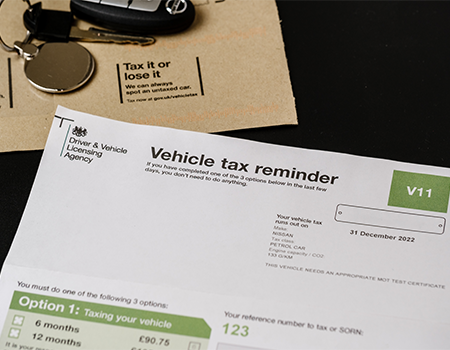
How to SORN a car?
There are three convenient ways to SORN your car: online, by phone, or by post. The quickest and easiest option is usually to do it online through the DVLA website. You’ll just need to have your vehicle registration number (VRN) on hand, which can be found on your vehicle registration document (V5C).
The DVLA website will guide you through the steps to complete the SORN process. If you prefer not to go online, you can also SORN your car by calling the DVLA on their dedicated phone line.
Finally, if you don’t have internet access or prefer a paper-based approach, you can apply for SORN by filling out a form and mailing it to the DVLA. Whichever method you choose, make sure you have your VRN and any other required information ready to go.
Where can I keep a SORN Vehicle?
Once your car is SORN, it’s important to remember that it cannot be driven on public roads under any circumstances. This includes being parked on the street or even driving it a short distance to a friend’s house.
The only permitted location for a SORN vehicle is on private property. This could be your driveway, garage, private car park, or any other land that isn’t considered a public road. Keeping your SORN vehicle on private property ensures it complies with the regulations and avoids any potential fines or penalties.
When do you need to declare my car SORN?
You should declare a car as being off the road if you have no intention of driving it on the road. When you register a vehicle as SORN, you no longer need to pay road tax or car insurance.
You should register the vehicle as being off the road before you stop paying insurance or tax. If not you could end up with a fine.
Can you choose when the SORN starts?
When applying to register your car as being off the road, you can choose when the off-road period will start.
If you want the SORN to start on the first day of the following month, you need the 16-digit number on your vehicle tax reminder letter (V11 letter).
However, if you want to declare your car as being off the road immediately (perhaps it’s failed its MOT and is too costly to repair at the moment) you need the 11-digit number on your vehicle log book (V5C).
How long is SORN valid?
The beauty of SORN is that it remains valid until you take specific actions with your car. Unlike tax which needs to be renewed periodically, a SORN application doesn’t have an expiry date. Once your car is SORN, it will stay that way until:
- You decide to tax the car again and get it back on the road.
- You sell the car to a new owner.
- You permanently export the car from the UK.
- You scrap the car at an authorised scrapyard.
In any of these scenarios, the SORN status will automatically be cancelled by the DVLA. There’s no need to inform them separately that your car is no longer SORN. It’s important to note that if you simply decide to tax your car again without notifying the DVLA that you’re taking it off SORN, your SORN status will remain active. This could potentially lead to issues down the line, so it’s always best to follow the proper procedures when your circumstances change.
Can you drive a SORN car?
You can only drive a SORN car on the road to go to or from a pre-booked MOT or testing appointment. The appointment should be pre-booked as the police will check to verify that you are heading to a garage for the car to be tested.
If you are driving the car in any other circumstances, you can be prosecuted and fined up to £2,500.
You should also bear in mind that due to Continuous Insurance Enforcement (CIE) legislation it’s an offence to be a registered keeper of a vehicle without car insurance unless you’ve notified the DVLA the car is SORN.

Can you drive a SORN car to MOT without Insurance?
Unfortunately, no. Even if it’s just a short trip, you cannot drive a SORN car on a public road for any reason, not even to get an MOT. The MOT is a mandatory test that ensures your vehicle meets road safety and environmental standards.
If your SORN car needs an MOT and you want to get it back on the road soon, you’ll need to temporarily insure it for the journey to and from the MOT testing centre.
While it might seem like a hassle, this temporary insurance ensures you’re legally compliant and covered in case of any unforeseen incidents during the short trip
How to get my car back on the road after SORN?
It’s easy to get a SORN car back on the road, simply tax it again which automatically de-registers it. You can do this online, over the phone or at Post Office branches, but you need your 11-digit reference number on the V5C.
You will also need to make sure the car has a valid MOT and is insured.
Is it free to SORN a car?
It doesn’t cost anything to declare your vehicle as being off the road. If you have paid your road tax upfront, you will get a refund for any full month’s remaining tax paid.
How long is a SORN Valid?
You previously had to declare your vehicle as SORN every 12 months, however, now it remains in place indefinitely until the car is sold on. Once you’ve declared the vehicle as being off the road, you don’t need to renew anything.

How to take a car off SORN?
If you eventually decide to get your car back on the road, you’ll need to take it off SORN. The process is just as simple as applying for SORN in the first place.
You can do it online, by phone, or by post using the same methods mentioned earlier. Once you take your car off SORN, you’ll need to tax and insure it again before you can legally drive it on public roads.
Having a valid tax and insurance policy is essential for road use and protects you financially in case of an accident.
Can I SORN my bike?
The SORN program is specifically designed for cars and trailers. There’s no need to SORN a motorbike or any other type of two-wheeled vehicle, such as a scooter or moped.
If you have a motorbike that’s off the road and not in use, you can simply keep it on private property without needing to notify the DVLA. However, motorbikes still require a valid MOT and insurance if you plan to use them on public roads.
